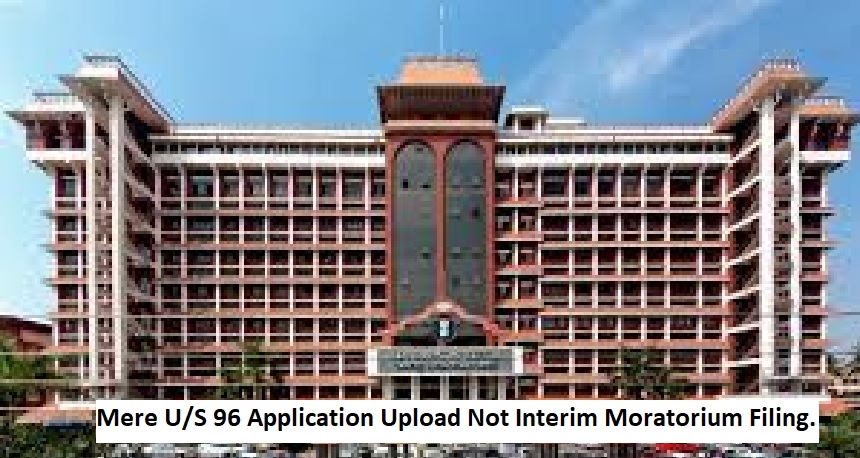


The Kerala High Court, in a recent ruling, emphasized that merely uploading an application under Section 96 of the Insolvency and Bankruptcy Code (IBC), 2016, does not constitute the filing of an application for the interim moratorium to take effect. The court clarified that the provisions of Sections 96 and 101 of the IBC, which govern the interim and final moratorium, have significant consequences, staying legal proceedings and preventing creditors from initiating actions on a debtor's debts once an application is filed. Justice N. Nagaresh highlighted the need for a strict interpretation of Section 96, considering the serious implications it imposes.
Section 96 of the IBC stipulates that when an application is filed under Section 94, an interim moratorium begins on the application date, covering all debts. This moratorium ceases upon the admission of the application. Justice Nagaresh pointed out that the filing of an application under Section 96 should be flawless and comply with statutory procedural requirements. Mere uploading of the application is insufficient; it must be defect-free, satisfying all procedural criteria, and accepted by the adjudicating authority.
The case involved a petitioner, a sleeping partner in a Limited Liability Partnership (LLP), who borrowed Rs. 65,10,000 from a bank. The LLP defaulted on the loan, leading to the account being classified as non-performing. The bank initiated recovery proceedings under the Securitisation and Reconstruction of Financial Assets and Enforcement of Security Interest Act, 2002 (SARFAESI Act). Subsequently, the petitioner initiated insolvency resolution under Section 94 of the IBC before the National Company Law Tribunal (NCLT), Kochi Bench, which was accepted.
The petitioner argued that despite the initiation of insolvency proceedings, the bank resorted to coercive actions under the SARFAESI Act. The petitioner contended that actions under the SARFAESI Act should be stayed according to Section 96(b) of the IBC, and the IBC should take precedence over the SARFAESI Act. However, the bank's counsel argued that the petitioner's application under Section 94 had not been admitted by the NCLT, and no case number had been assigned.
The court noted that Section 96 of the IBC triggers an interim moratorium from the application date until admission. During this period, all legal actions related to debts are deemed stayed. The critical question before the court was whether the filing of the application alone would result in an interim moratorium as per Section 96.
The court emphasized that for Sections 96 and 101 to take effect, the application must be complete, without procedural defects. In this case, since the NCLT had not assigned a case number to the petitioner's application, the interim moratorium could not be enforced. The court dismissed the petitioner's argument regarding the overriding effect of the IBC over the SARFAESI Act, stating that unless there is a conflict between the two statutes, the IBC provisions do not override the SARFAESI Act.
The court concluded that the initiation of insolvency proceedings by the petitioner did not prevent the bank from proceeding with actions under the SARFAESI Act. The decision underscores the importance of a comprehensive and defect-free application for the interim moratorium to take effect and clarifies the relationship between the IBC and the SARFAESI Act.
TAGS: Limited Liability Partnership (LLP) Default on loan Non-performing account Coercive proceedings Overriding effect Adjudicating authority